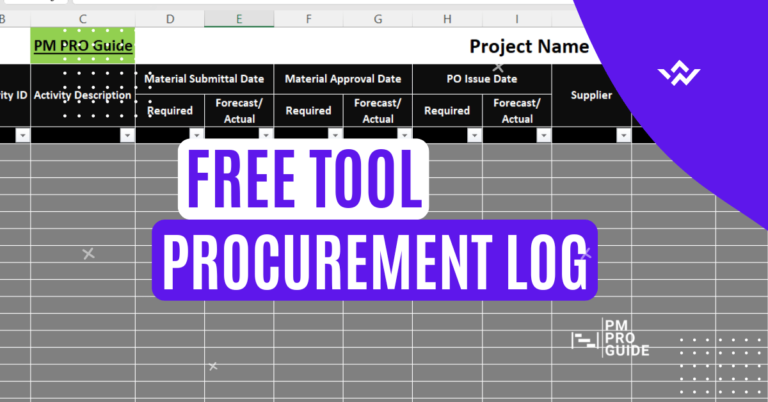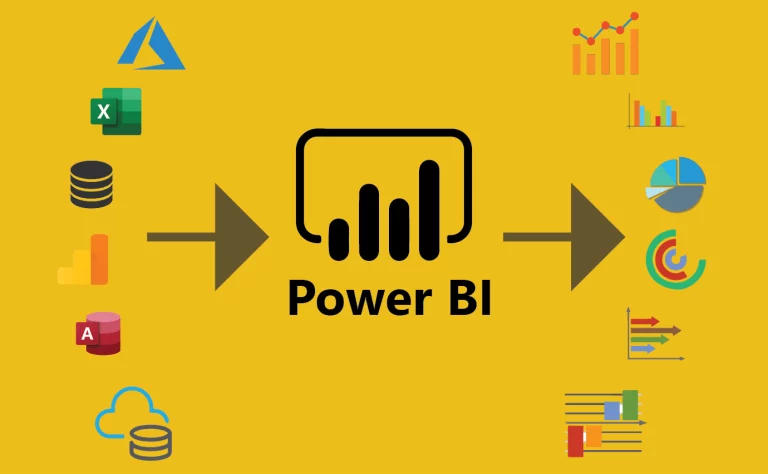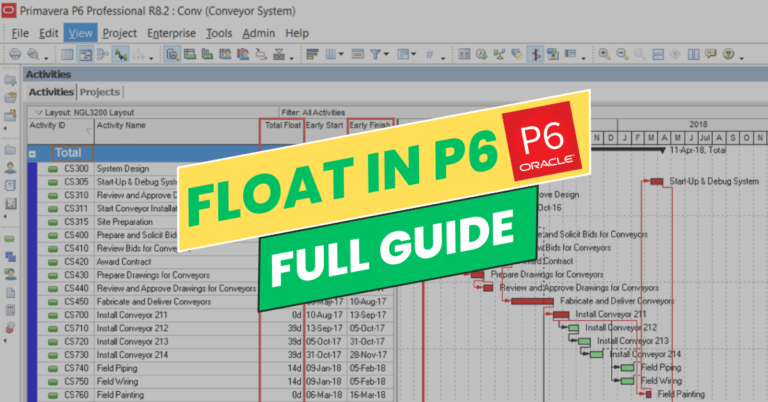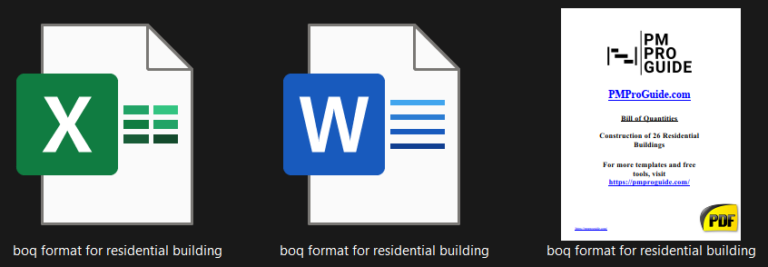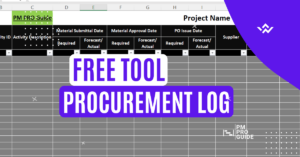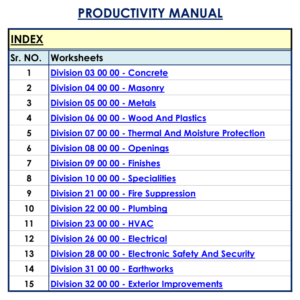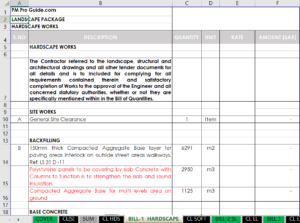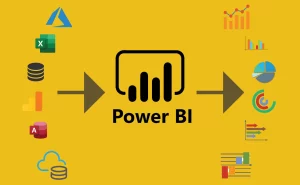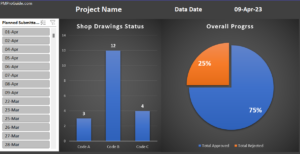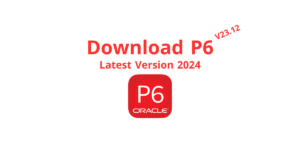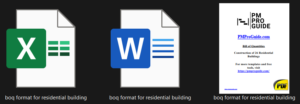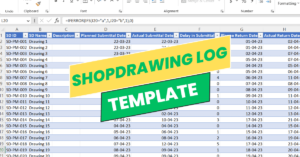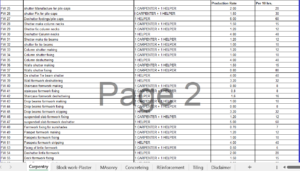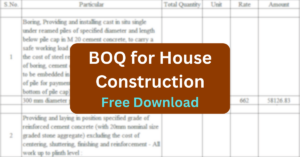I’m a fresh planning engineer or still in the final year of college and wondering, is Project management and especially planning, a good start for me. Is it worth all the studying hours and reading and courses?, Will I find a good job with a high salary easily?, Should I as a fresh planning engineer study for a PMP?
The Short answer to all these questions is. Yes
But the long answer has to be more detailed, and that’s what we’re going to discuss in this article. As a fresh graduate in the field of planning engineering, it can be challenging to find the right job and begin a successful career. This article aims to guide how to start learning and find a good job in planning.

Table of Contents
Introduction
First, having a strong foundation in the basics of planning engineering is essential. This includes knowledge of project management principles, planning tools, and techniques and proficiency in software programs such as Microsoft Project and Primavera P6. Taking courses or attending training sessions can be a great way to develop these skills and stay up to date with industry standards.
Networking is also crucial in finding a job in planning. Attending industry events, joining professional organizations, and connecting with other professionals on social media can all help to create valuable connections that may lead to job opportunities. Building a strong online presence through a professional website or LinkedIn profile can also help to put you on the spot and let other people in the industry know that you exist!
Why Planning?

Planning is a critical topic in the world of construction. It involves the careful and deliberate creation of a project’s schedule, timeline, budget, and resources needed to ensure a successful outcome.
Effective planning is essential for any construction project, regardless of its size, complexity, or scope. Without proper planning, projects can face delays, cost overruns, and other challenges that can significantly impact their success.
This article is specifically designed for fresh graduates who are interested in pursuing a career in planning engineering. It aims to provide guidance on how to start learning about planning, finding a good job, and advancing in the field. Additionally, the article will also address common questions, such as whether or not it is worth studying for a PMP certification, and what types of salaries can be expected in planning.
First: What to Study as a Fresh Planning Engineer?
As you start your planning career you have to focus on the main three axes that any planning job needs.
These three axes are Planning principles, software experience, and actual projects experience.
We will try to cover all these three corners in this article and we will recommend books, courses, blogs and certificates to start with.
As a fresh graduate planning to become a planning engineer, there are certain skills and knowledge areas that are essential to succeed in this field.

A. Essential skills for planning engineers
These include strong analytical and critical thinking skills, good communication and interpersonal skills, attention to detail, and the ability to work under pressure and meet deadlines.
B. Planning and project management fundamentals
Planning engineers need to have a solid understanding of project management methodologies and techniques, such as scheduling, budgeting, risk management, and quality management.
C. Importance of knowledge in construction and engineering software
Planning engineers need to be proficient in using planning software such as Primavera P6, Microsoft Project, or Asta Powerproject, as well as engineering software such as AutoCAD or Revit [A Plus].
Also, every planning engineer has to sharpen his Microsoft Excel skills. If you want to reach the moon in planning, you have to be good at Power Query and Pivot Tables
D.The importance of working and applying this knowledge on a real project for Fresh Planning Engineer

While theoretical knowledge is important, practical experience is equally valuable. Working on a real project will give planning engineers hands-on experience and help them develop their skills and knowledge further.
You’re now asking, how can I work on a real project while I’m still in college on just graduated?
The answer is to take a course that has a case study with real projects. You can talk to professionals through LinkedIn too and ask them for case studies or internships.
Feel free to contact me on LinkedIn for totally free support and to ask for any project data.
By focusing on developing these skills and knowledge areas, planning engineers can increase their chances of finding a good job and excelling in their careers.
Second: How to find a job?
A. Strategies for finding job openings for Fresh Planning Engineer
As a fresh graduate planning engineer, finding a job can be challenging, but with the right strategies, you can increase your chances of landing your dream job. One effective strategy is networking. Connect with professionals in your field through events, social media, and professional associations. Networking can provide valuable information on job openings and opportunities.
That’s exactly what I did after graduating, I connected with every single person in the community to be sure that I’m up to date with any job post or trend in the field.
Another effective strategy is job search websites. There are numerous job search websites that cater specifically to the construction and engineering industries. Register with these websites and set up job alerts to receive notifications when new job openings are posted.
We recommend PlanningEngineer.net. They have a section on their website for new jobs in the whole world.
You can also consider reaching out to recruitment agencies that specialize in the construction and engineering industries. These agencies have an extensive network of contacts and can connect you with potential employers.
I personally don’t recommend this step, and only do it if you tried everything and there is no results.
Finally, don’t underestimate the power of a well-crafted resume and cover letter. Your resume should highlight your skills, education, and any relevant work experience.
Your cover letter should be tailored to the specific job and demonstrate your enthusiasm and qualifications for the position.
We are also here for you if you want to send your resume to review it and give you recommendations.

B. Networking and utilizing job search resources
In addition to searching for job openings online, utilizing networking resources can help Fresh Planning Engineer find job opportunities in the construction industry.
Professional organizations, industry events, and social media platforms are all great places to network with other professionals in the field.
Attending events and conferences related to construction and engineering can provide opportunities to meet with potential employers and learn about job openings.
Additionally, joining professional organizations such as the American Society of Civil Engineers (ASCE) or the Project Management Institute (PMI) can provide access to job postings, networking events, and other resources for planning engineers.
Social media platforms such as LinkedIn can also be useful for networking and finding job opportunities.
Creating a professional profile and connecting with other professionals in the construction industry can help planning engineers stay informed about job openings and connect with potential employers.
C. Tips for acing the interview process
Securing a job interview is only the first step towards landing a job as a planning engineer. To ensure that you are hired for the position, you need to ace the interview process. Here are some tips for acing the interview:
Research the company
Before the interview, make sure you research the company you are applying to. Learn about their projects, their clients, and their values. This will help you understand the company’s needs and tailor your responses accordingly.
Highlight your skills
During the interview, be sure to highlight your skills and experience in planning and project management. Give specific examples of projects you have worked on and the results you achieved.
Prepare for common interview questions
There are several common interview questions that you should be prepared to answer, such as “What are your strengths and weaknesses?” and “Tell me about a time when you had to overcome a challenge.” Practice your responses to these questions so that you can give clear, concise answers.
Dress professionally
Dressing professionally is important for making a good first impression. Wear a suit or professional attire to the interview.
Follow up
After the interview, be sure to follow up with a thank-you email or letter. This will show the employer that you are interested in the position and appreciate the opportunity to interview.
By following these tips, you can increase your chances of acing the interview and landing the job as a planning engineer.
Pro Tip: We have a full guide for planning engineer interview questions that is made by planning engineer, Hany Ismael.
Feel free to contact us to get access to the file for free.
Third: Salary expectations for Fresh Planning Engineer

As a planning engineer, understanding salary expectations is important for managing personal finances and making informed decisions about job offers.
It’s important to consider the factors that affect planning engineer salaries, including education, experience, location, company size, and industry.
In addition, keeping up with current market trends and knowing what similar roles pay in the market is crucial.
To get an idea of entry-level salaries for planning engineers, research salary benchmarks and ranges in the industry. This can be done by using online salary calculators, industry reports, or talking to professionals in the field.
The average salary for a planning engineer can vary depending on the region, the type of construction, and the level of experience.
You can use the salary ranges provided in planningengineer.net website but it is outdated to feb-2022
It’s important to remember that salary is not the only factor to consider when evaluating job offers. Benefits, such as health insurance, retirement plans, and vacation time, should also be taken into account.
Additionally, the opportunity for professional development and career growth should also be considered.
As a fresh graduate planning engineer, gaining experience and building a solid foundation of skills is the priority. While salary is important, it’s essential to focus on building a strong career path and developing expertise in the field. As experience grows, so does earning potential.
Finally, is it worth getting a PMP certification?
As we mentioned above, considering PMP at the start of your career may seem a good decision but take into consideration these details.
Benefits of PMP certification for planning engineers
Planning engineers can enhance their knowledge and skills in project management by obtaining a Project Management Professional (PMP) certification.
PMP is a globally recognized certification that validates the skills and knowledge of individuals in the field of project management.
By obtaining a PMP certification, planning engineers can demonstrate their proficiency in project management methodologies, principles, and best practices.
This certification also allows planning engineers to stay updated on the latest trends and developments in the field of project management.
In addition, a PMP certification can also increase the credibility and marketability of planning engineers. Employers tend to value and prioritize individuals who have obtained a PMP certification due to the rigorous training and examination process required to obtain the certification. This can result in better job opportunities and potentially higher salaries.
However, obtaining a PMP certification requires significant time and effort, including passing a rigorous exam and obtaining a certain number of hours of project management experience. Planning engineers should carefully evaluate their goals and career aspirations before deciding to pursue a PMP certification.
Overall, a PMP certification can offer several benefits for planning engineers who are looking to advance their careers in project management. It can enhance their knowledge, skills, and marketability, potentially leading to better job opportunities and higher salaries.
Related: Is PMP Still Worthy In 2023? Your Ultimate Guide to Project Management Certification
Factors to consider as a Fresh Planning Engineer before pursuing PMP certification.
Pursuing a PMP (Project Management Professional) certification can be a valuable asset for planning engineers, but it’s important to consider a few factors before taking the leap.
Firstly, it’s essential to understand the level of commitment required for PMP certification. This includes completing the required coursework, accumulating enough project management experience, and passing the certification exam.
Additionally, it’s important to consider the cost of obtaining a PMP certification. The exam fee, study materials, and potential training courses can add up, and it’s important to make sure that the investment is worth it in the long run.
Another factor to consider is the value that PMP certification holds in the job market. While it’s generally regarded as a valuable certification, it may not be a requirement for all planning engineer positions.
It’s important to research job postings and industry standards to determine if PMP certification is necessary or highly regarded in a particular field.
Lastly, it’s important to assess one’s own career goals and aspirations. Pursuing a PMP certification may align with certain career paths and opportunities, while other paths may not require or prioritize PMP certification.
Overall, while PMP certification can offer many benefits for Fresh Planning Engineer, it’s important to carefully consider the commitment, cost, job market value, and personal career goals before pursuing it.
Alternatives to PMP certification for skill development
While PMP certification is a valuable credential for Fresh Planning Engineer, it’s not the only path to skill development.
There are several alternatives to PMP certification that can help planning engineers improve their skills and knowledge. These alternatives include attending workshops, training courses, and seminars, as well as participating in professional associations and networking events.
Planning engineers can also gain valuable experience by working on real projects, taking on leadership roles, and collaborating with colleagues to solve complex problems. By pursuing these alternatives, planning engineers can develop the skills and knowledge they need to succeed in their careers, without necessarily obtaining PMP certification.
Conclusion: The importance of continuous learning and professional development for Fresh Planning Engineer
In conclusion, planning is an essential aspect of the construction industry, and planning engineers play a crucial role in ensuring the success of any project.
To become a successful planning engineer, one needs to have essential skills such as project management fundamentals, knowledge of construction and engineering software, and the ability to apply this knowledge on real projects.
Additionally, strategies for finding job openings, networking, utilizing job search resources, and acing the interview process are crucial to securing a job in the field.
Furthermore, to enhance their career prospects and earning potential, planning engineers may consider pursuing PMP certification or other alternatives for skill development.
Ultimately, a combination of education, skills, and experience is necessary for a successful career in planning engineering. By following these tips and strategies, fresh graduates can pave the way towards a promising career in the construction industry.
Useful Links
- The Project Management Institute (PMI) – a professional organization for project managers that offers certification programs and resources for skill development. (https://www.pmi.org/)
- Indeed – a job search website that allows users to search for planning engineer job openings and research salary information. (https://www.indeed.com/)
- LinkedIn – a professional social media platform that allows users to network with other professionals, research companies, and search for job openings. (https://www.linkedin.com/)
- Autodesk – a software company that offers a variety of tools for the construction and engineering industries, including AutoCAD and Revit. (https://www.autodesk.com/)
- Planning Engineer – a website dedicated to providing resources and information for planning engineers, including articles, training courses, and job openings. (https://www.planningengineer.net/)



